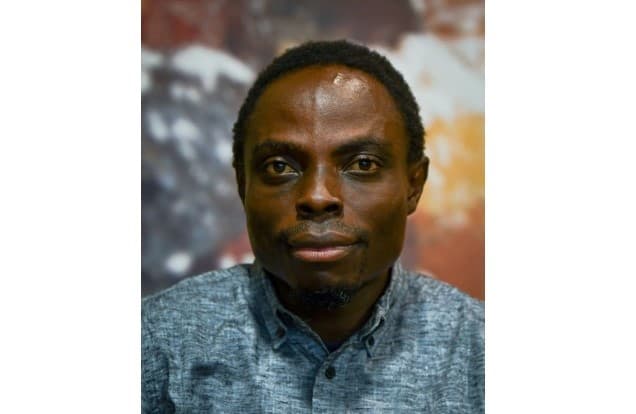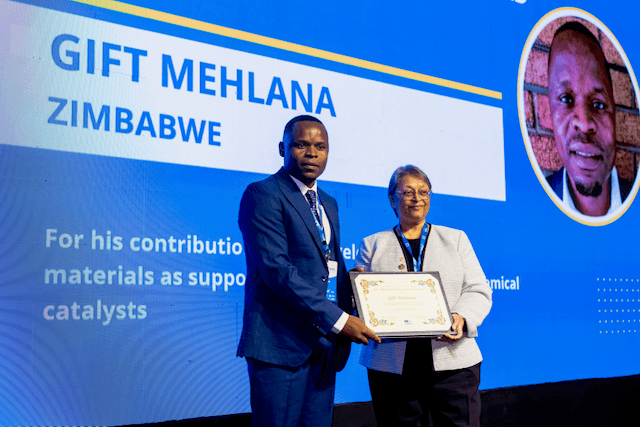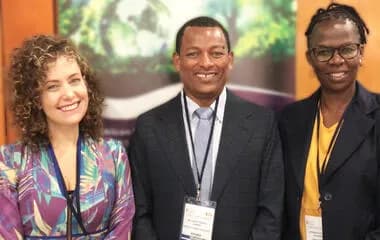News

Friday, May 21, 2021
Blog by Idowu Aimola, Nigerian Molecular Biologist and APTI Fellow
Summary
Most of the global burden of sickle cell disease (SCD) is in Africa, where it is a major contributor to child morbidity and mortality. SCD, also called Sickle Cell Anaemia, is a genetic disease in which the normal round shape of red blood cells is disfigured into a crescent moon shape. Round red blood cells can move easily through the blood vessels, but sickle-shaped cells interconnect, which can result in blood clots. This can be very painful and affects the ability of red blood cells to deliver oxygen to the tissues.
Nearly 90 percent of the global population of people living with SCD live in three countries: Nigeria, India and the Democratic Republic of Congo, where in total the disease affects up to 2 percent of the population, and the carrier prevalence rate (sickle cell trait) is as high as 10 to 30 percent. In Nigeria alone, at least 150,000 newborns are estimated to be born with SCD annually.
The disease was first reported in published literature in 1910, and to this day there is no affordable cure. The course of the disease varies widely: some children exhibit severe manifestations, requiring frequent hospital visits and admissions, thereby placing enormous stress and financial burden on their parents.
One important SCD therapy is to enhance foetal haemoglobin (the type of haemoglobin abundant in the red blood cells of neonates) in adult individuals with sickle cell disease. Foetal haemoglobin induction in these patients has been shown to ameliorate the clinical complications of sickle cell disease. However, it is still not well understood why some adult red blood cells retain the ability to produce foetal haemoglobin while others lose this ability. My research, enabled by the African Postdoctoral Training Initiative (APTI), sought to adapt and optimise single cell RNA sequencing to analyse reticulocyte gene expression in healthy individuals and individuals with SCD (single cell RNA sequencing can detect and analyse the genes in a single cell.)
Although foetal haemoglobin is the major type of haemoglobin in red blood cells during foetal development, they are rapidly replaced with adult haemoglobin cells shortly after birth. It is well known that foetal haemoglobin is not distributed uniformly in adult red blood cells, but only appears in a small subset, commonly known as F cells. However, it is not known why foetal haemoglobin is persistently present in F cells. Understanding the transcriptional programme that drives this phenomenon might be a powerful way to discover new drug targets to enhance foetal haemoglobin production for those with SCD and could potentially lead to highly beneficial therapeutics.
My APTI fellowship in the Collins lab at the National Human Genome Research Institute has afforded me the opportunity to acquire critical skills in molecular genetics and computational biology to enhance my research capacity. I have also built strategic collaborations with other regional and global scientists to transfer this knowledge to the benefit of my research program in Nigeria, which is characterising the transcriptional programme of F-cells in individuals with SCD in Nigeria. In this country, ~2% of all newborns are born with SCD; this is projected to increase to 30% by 2050 (Piel et al., the Lancet.) This work has the potential to generate novel reticulocyte single-cell transcriptome data relevant to the Nigerian population, which will ensure that findings will have translational impact for drug development for Nigerians with SCD. Moreover, I will analyse reticulocytes in individuals with SCD with different levels of foetal haemoglobin using single cell RNA sequencing to profile their entire repertoire of genes. This may provide critical insights into the molecular mechanisms of foetal haemoglobin expression and control. I also hope it will generate baseline human reticulocyte transcriptome data relevant to the African population, with the capacity to be leveraged for treatment of other diseases.
About Idowu Aimola

Idowu Aimola is a Nigerian molecular biologist and African Postdoctoral Training Initiative (APTI) Fellow based at the National Human Genome Research Institute (NHGRI) and Ahmadu Bello University in Nigeria. APTI is implemented through the Alliance for Accelerating Excellence in Science in Africa (AESA), a funding, agenda setting, and programme management platform of the African Academy of Sciences (AAS) and the African Union Development Agency (AUDA-NEPAD) supported by the U.S. National Institutes of Health (NIH) and the Bill & Melinda Gates Foundation. APTI trains African researchers in global health and develops their skills in clinical and translational research.




